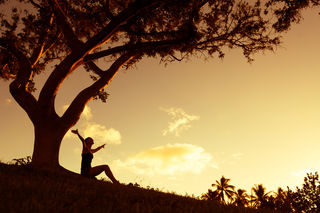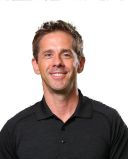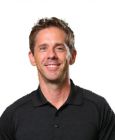Health
Huna and Healing
Focus on living with optimal health, not avoiding disease.
Posted July 25, 2017
“Effective health care depends on self-care; this fact is currently heralded as if it were a discovery.” —Ivan Illich

Our healthcare system seems to be on everybody’s mind lately and it got me thinking. (Don’t panic! I’m not planning on a political rant for this article!): What exactly is the purpose of modern Western healthcare systems?
I have many students, colleagues and friends who are medical professionals. I respect them all and honor their sincerity. That said, I agree with psychiatrist M. Scott Peck (author of A Road Less Traveled) who said,
“We know a great deal more about the causes of physical disease than we do about the causes of physical health.”
Though we seem to be moving toward a more holistic approach to healing and health, the focus is still on disease—disease prevention, finding cures for disease, relieving symptoms of disease— rather than promoting and optimizing health. Even our initiatives to be more health conscious seem to be based on the desire to avoid getting sick. And though we talk about the importance of mind-body-spirit connection, emphasis is still heavily on physical medical interventions and treatment by medication.
Don’t get me wrong. If I break an arm, I’m not going to sit right down and try to OM it away. I’m heading into someone who will x-ray the arm and put it in a cast ASAP! (And when I get home, I’ll definitely work with the energy, meditate and do some ho’oponopono to assist the healing.)
But overall, I prefer the approach to health I’ve learned from my years studying and teaching Huna. It focuses on living with optimal health, not avoiding disease.
Huna is one of the original sciences of healing, enlightenment and personal empowerment. Huna’s original name is ho’omana. Ho'o means "to make" and mana means "life force," like ki (as in Aikido), chi (as in Tai Chi) or prana in the Sanskrit language. Taken together, the word ho’omana means empowerment or to empower.
Huna (ho’omana) taught ancient Hawaiians how to get in touch with their life-force energy, how to work with this energy, and how to understand their individual connection with the environment and others. Staying pono (which means in harmony or balance with the world and aligned with themselves) was a way of life to them, not just something they could expect every once in a while when the stars were aligned.
Huna taught Hawaiians how to work with unihipili (the unconscious mind) to release stress and their repressed emotions. Whenever a negative emotion or distressful memory popped up, Hawaiians understood that this was a signal to realign and release that emotion or memory. They didn’t shove the bad feelings down, “cope” with them or medicate them away. They took action through ritual or processes like ho’oponopono to heal them, get the learnings of this experience, and let the feelings go so they could become pono once again.
Prior to missionaries coming to Hawaii, Hawaiians had very little (if not zero) disease which in my humble opinion is due to this emphasis on remaining pono and aligned spiritually, emotionally, mentally and physically at all times. Rather than ignoring initials signs of imbalance in any area, even lay people in Hawaii had the tools to return themselves to being pono.
But when someone did require help with healing—whether physical or emotional— Huna’s approach was truly holistic incorporating mind, body and spirit. Within Huna, kahuna (teachers or masters) specialized in different aspects. For example, kahuna called La’au Lapa’au specialized in physical healing and La’au Kahea were experts at psychological healing and had the ability to call the mana or energy. These “specialists” always worked together because they knew that our minds, emotions, and spirits are not separate from our bodies.
Healing in Huna required full participation from the person being healed. Huna teaches that only you can make the change you seek. It cannot be given to you. A kahuna could guide, instruct, open the path for you. But he or she will not walk the path for you.
Three things had to be present for a healing to take place. First, the person had to give permission. Without permission, there was no space and/or connection to do the work. In Western culture, doctors often think they have the best course of treatment for a patient. But without a patient’s full buy-in, they’ve also seen that their treatments won’t be as effective—and sometimes don’t work at all.
Second, the person receiving the healing had to acknowledge that healing comes from a higher source. This source could be aumakua (higher conscious mind), higher self, God, or anything within that person’s belief system. When was the last time your primary care physician offered to pray with you or asked about your spiritual path? Though Western medicine has embraced things like meditation to assist healing, discussion of spirituality still seems less accepted.
Third, the person had to acknowledge the kahuna was just a conduit or channel who called in healing energy. They were not the source of it. People sought out kahuna because they were experts in healing. But the healing itself was a "do with," not a "do to" process. Healers knew they were not gods and remained humble.
Additionally, the kahuna made sure the place where healing would happen was sacred. They would not commence any healing work if anyone present in the room did not believe or was skeptical that healing could really happen. They knew that the energy of healing isn’t outside the environment and people in it but generated from within. Western medicine is just beginning to acknowledge how important a positive support network is to a patient’s ability to heal.
We may not be able to totally overhaul how our Western culture views health and healthcare. But individually, we can positively impact our own health by doing what we need to do to remain pono with ourselves and our world, and remembering that, as Hippocrates wrote:
“Natural forces within us are the true healers of disease.”
To your TOTAL empowerment!
Mahalo,
Dr. Matt
Byline: Matthew B. James, MA, Ph.D., is President of The Empowerment Partnership. Author of several books, Dr. Matt has trained thousands of students to be totally empowered using Neuro Linguistic Programming (NLP), Huna, Mental Emotional Release® (MER®) therapy, and Empowerment Fit, a program that incorporates targeted mind/body/spirit practices to create optimal physical fitness and health. Download his free special report, Everything You’ll Ever Need to Know to Achieve Your Goals. To reach Dr. James, please e-mail him at info@Huna.com or visit his blog at www.DrMatt.com.




